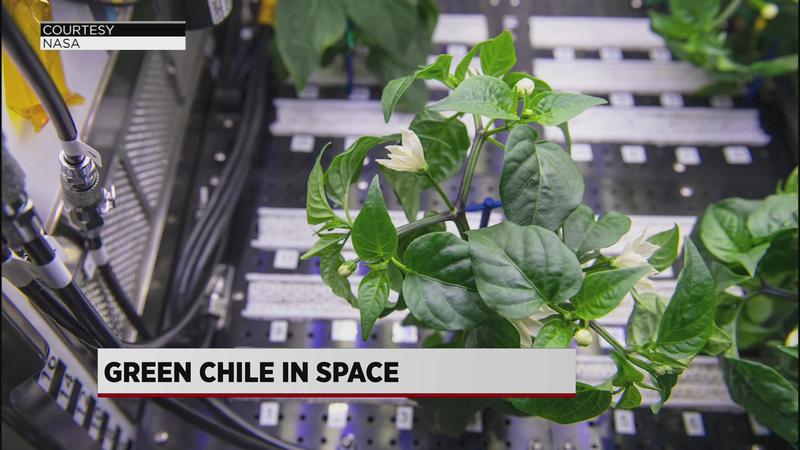New Mexico green chile is now growing in space
[anvplayer video=”5062883″ station=”998127″]
ALBUQUERQUE N.M. – Nearly 250 miles above, some New Mexico green chile is growing on the International Space Station.
It’s the "Española Improved" pepper to be exact – a cross between the Sandia pepper and the traditional Española pepper.
"The thought was that if we had a pepper that grew up north where winter comes sooner, the pepper would mature faster,” Engineering Plant Scientist Jacob Torres said.
The four chile plants were grown from seed while on board the International Space Station. They’re growing in a baked clay that allows for a perfect mixture of both air and water inside the root zone in microgravity.
"Water moves a little differently in microgravity and it can just completely either drown or drought the plant," Lead Horticultural Scientist LaShelle Spencer said.
It was a long process choosing and sanitizing the seeds but fast forward to today, after 93 days of growth, the plants are setting chile and now have 20 total fruits on the four plants. The first harvest should be just 20 days from now.
"We’re excited about that because Megan and the crew that have been so diligently maintaining our crops, we’ll be able to harvest before they leave and hopefully taste the fruits of their labor and then the final harvest will be at day 140," Spencer said.
Megan Mcarthur is a NASA astronaut on board the International Space Station, and she’s been helping out pollinating these plants by hand.
Here’s one of the reasons why they’re doing this:
"Ultimately, we want to be able to supplement the astronaut’s diet on deep space missions and later missions to the moon and Mars," Torres said.
It also brings a connection for the astronauts back to Earth, from more than 200 miles away.
"While very stressful, the greatest joy I’ve had is to watch the crew when they open that door and they smell those plants and how their face lights up with that interaction with those plants and how we brought a little bit of home up there to that very sterile environment," Spencer said.
